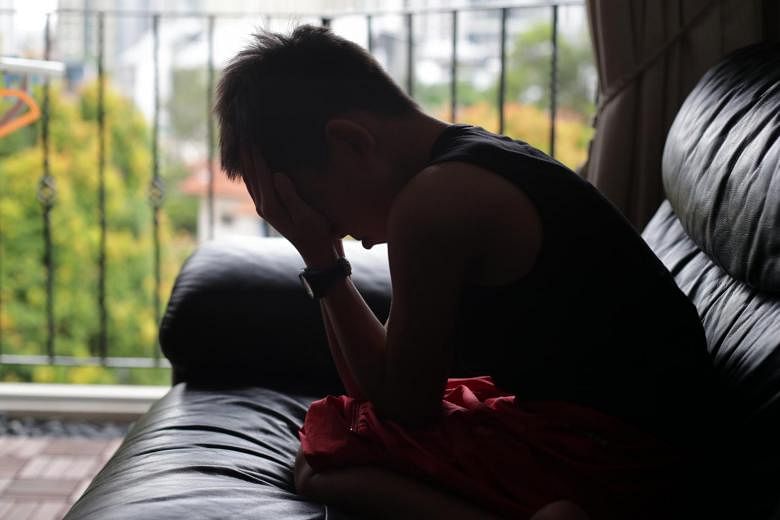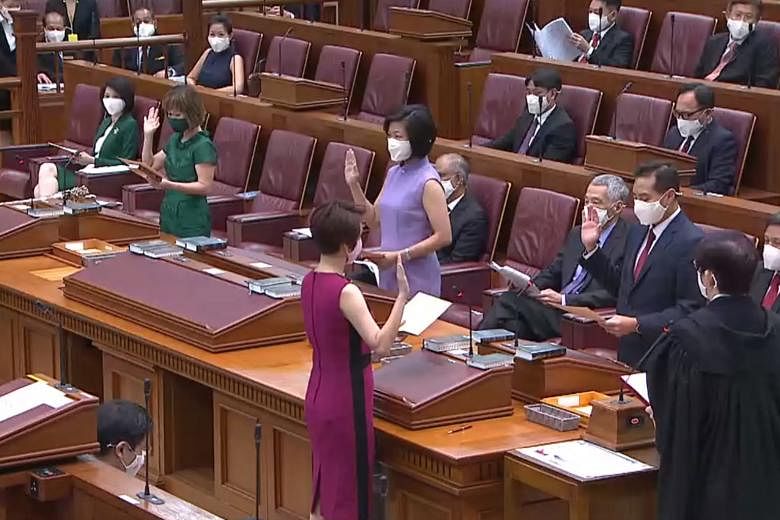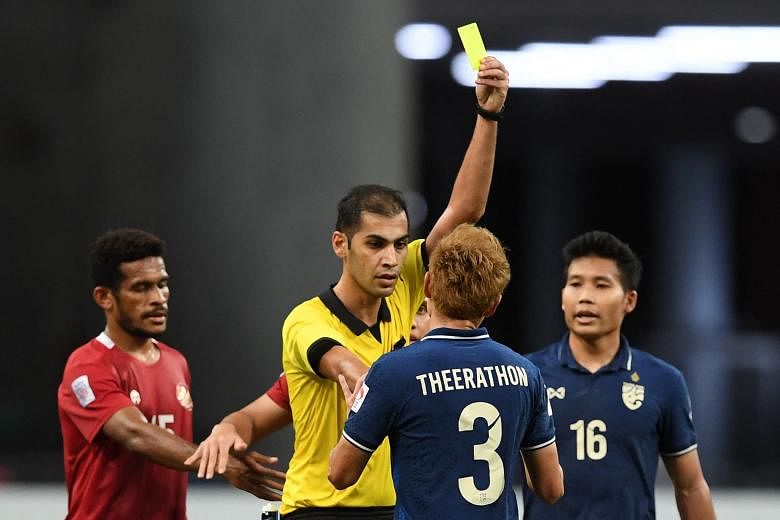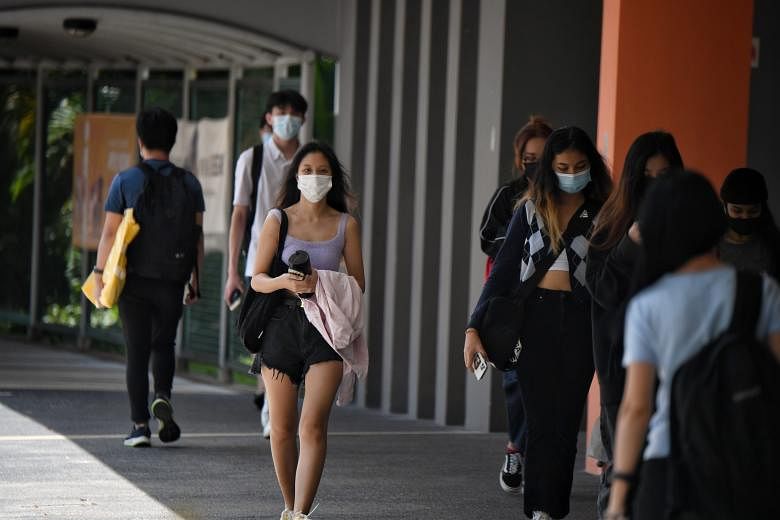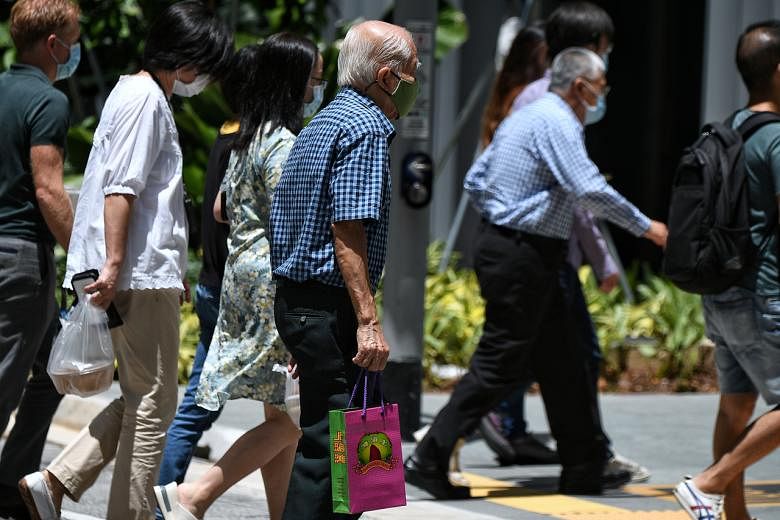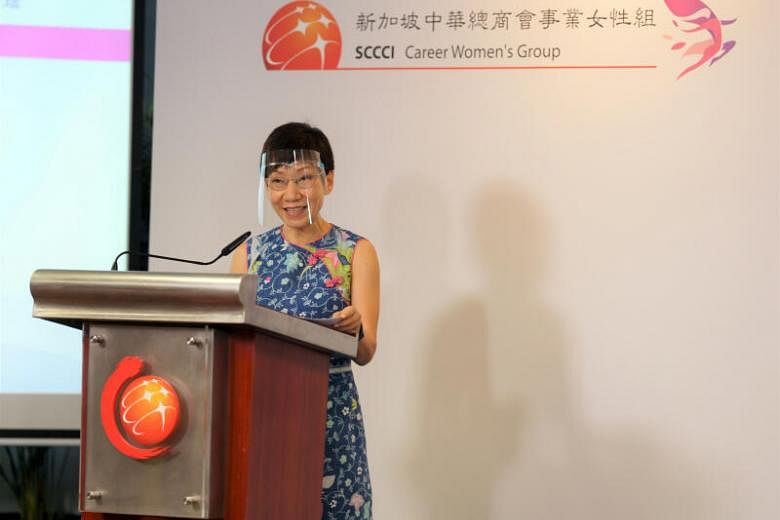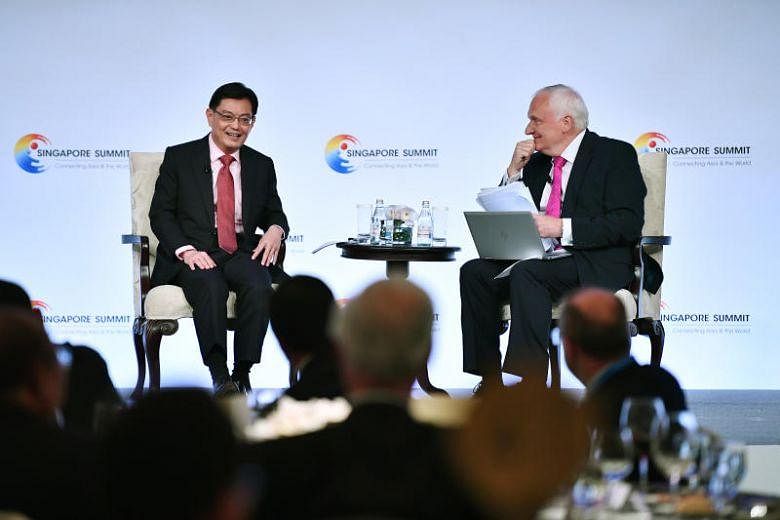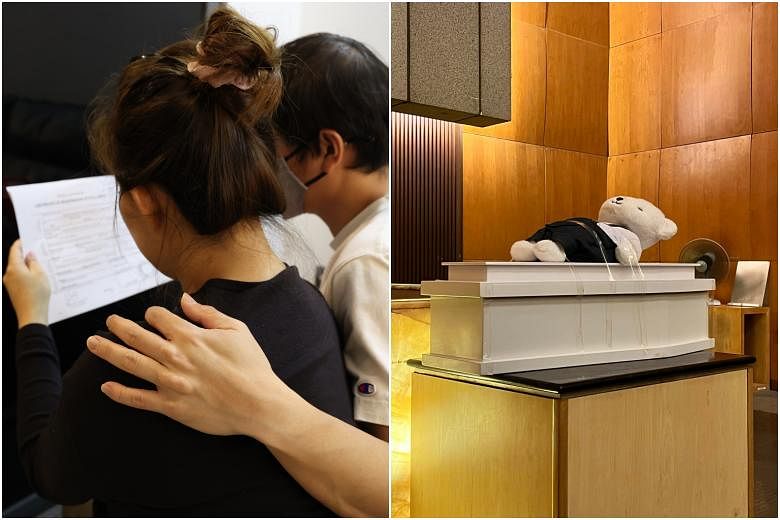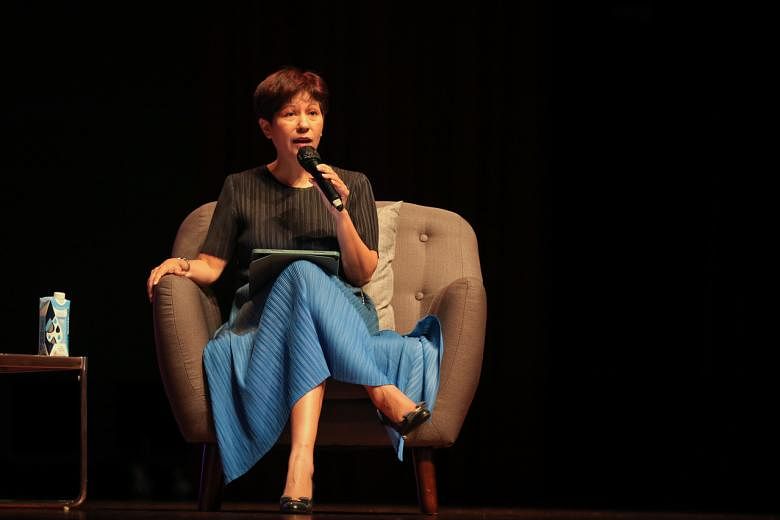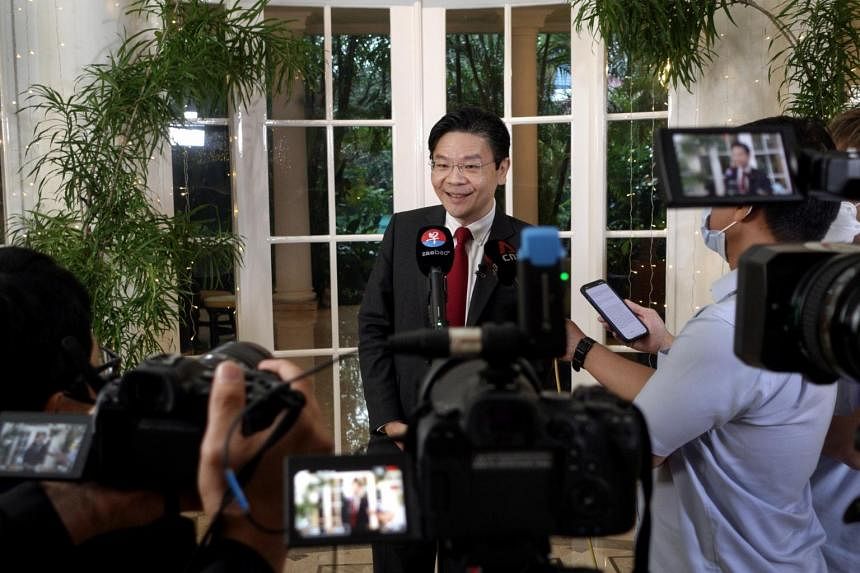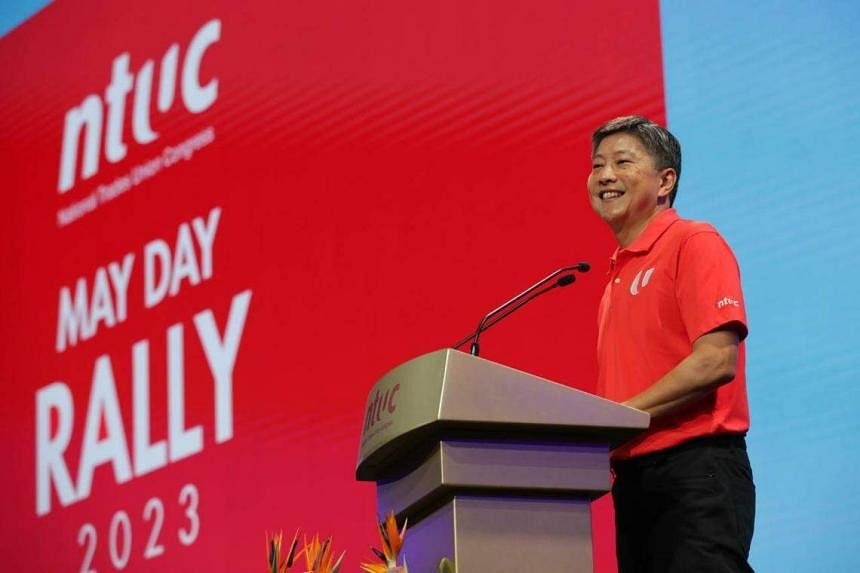The most frequent user of this phrase is Rubber Stamper Halimah.
"There is no place in Singapore for violence against women, and more must be done to prevent such abuse and to support its victims, said President Halimah Yacob on Friday (March 18)."
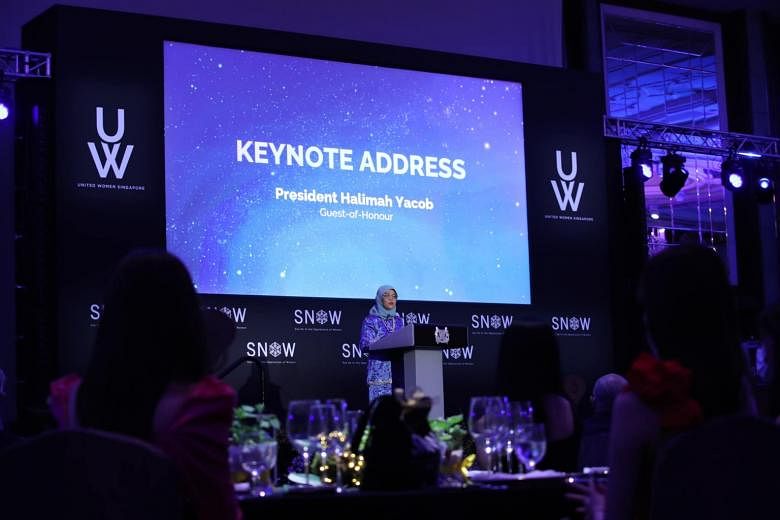
President Halimah Yacob condemned the perpetrators of such abuse and the harm they cause. PHOTO: HALIMAH YACOB/FACEBOOK

Linette Lai
Health Correspondent
MAR 18, 2022, 10:20 PM SGT
SINGAPORE - There is no place in Singapore for violence against women, and more must be done to prevent such abuse and to support its victims, said President Halimah Yacob on Friday (March 18).
Speaking at a fund-raising dinner organised by United Women Singapore (UWS) - a local non-profit organisation formerly known as the Singapore Committee for UN Women - she condemned the perpetrators of such abuse and the harm they cause.
"Such violence robs women of their dignity, inhibits their development, and prevents them from taking their right place in society," Madam Halimah said.
"Often, it's not just the women who suffer. The worst victims are their children, whose lives are disrupted and future compromised."
Citing a 2019 survey jointly conducted by UWS and market research firm Ipsos, President Halimah noted that three in 10 Singaporeans say they have experienced domestic abuse, or know someone who has.
Even so, 40 per cent of the population are apathetic on the issue as they think it rarely occurs - demonstrating a lack of awareness, she said.
The Say No To The Oppression of Women dinner - or Snow for short - was held at the Shangri-La Hotel, and saw around 300 guests, including Minister of State for Social and Family Development and for Education Sun Xueling.
In her speech, Madam Halimah outlined efforts by the Government to protect women from harm.
These include instilling values of respect at home, reinforcing them in school and making sure they are upheld at the workplace.
Punishments for offenders should also serve as a sufficient deterrent and be commensurate with the harm they inflict, Madam Halimah added.
The courts have been able to deal with sex offenders more severely since March 1, when amendments to the law kicked in.
Lastly, the recommendations of the Taskforce on Family Violence will help enhance protection for people who face such abuse and raise greater awareness of such violence.
President Halimah lauded the work that UWS and other social service organisations do, adding: "Such efforts must be reinforced by policies and institutions that foster a strong culture of safety and respect in our society."
Ms Sun also took part in a dialogue with UWS president Georgette Tan on women's development in Singapore. It touched on topics such as parenthood, education and women in science, technology, engineering and mathematics (Stem) careers.
She stressed the importance of role models, especially when it comes to women in Stem fields. "It's one thing for us to discuss it in the classroom, but it's quite another for the student to actually see it happening in the corporate world, and have role models to look up to."
"There is no place in Singapore for violence against women, and more must be done to prevent such abuse and to support its victims, said President Halimah Yacob on Friday (March 18)."
More must be done to prevent violence against women: President Halimah

President Halimah Yacob condemned the perpetrators of such abuse and the harm they cause. PHOTO: HALIMAH YACOB/FACEBOOK

Linette Lai
Health Correspondent
MAR 18, 2022, 10:20 PM SGT
SINGAPORE - There is no place in Singapore for violence against women, and more must be done to prevent such abuse and to support its victims, said President Halimah Yacob on Friday (March 18).
Speaking at a fund-raising dinner organised by United Women Singapore (UWS) - a local non-profit organisation formerly known as the Singapore Committee for UN Women - she condemned the perpetrators of such abuse and the harm they cause.
"Such violence robs women of their dignity, inhibits their development, and prevents them from taking their right place in society," Madam Halimah said.
"Often, it's not just the women who suffer. The worst victims are their children, whose lives are disrupted and future compromised."
Citing a 2019 survey jointly conducted by UWS and market research firm Ipsos, President Halimah noted that three in 10 Singaporeans say they have experienced domestic abuse, or know someone who has.
Even so, 40 per cent of the population are apathetic on the issue as they think it rarely occurs - demonstrating a lack of awareness, she said.
The Say No To The Oppression of Women dinner - or Snow for short - was held at the Shangri-La Hotel, and saw around 300 guests, including Minister of State for Social and Family Development and for Education Sun Xueling.
In her speech, Madam Halimah outlined efforts by the Government to protect women from harm.
These include instilling values of respect at home, reinforcing them in school and making sure they are upheld at the workplace.
Punishments for offenders should also serve as a sufficient deterrent and be commensurate with the harm they inflict, Madam Halimah added.
The courts have been able to deal with sex offenders more severely since March 1, when amendments to the law kicked in.
Lastly, the recommendations of the Taskforce on Family Violence will help enhance protection for people who face such abuse and raise greater awareness of such violence.
President Halimah lauded the work that UWS and other social service organisations do, adding: "Such efforts must be reinforced by policies and institutions that foster a strong culture of safety and respect in our society."
Ms Sun also took part in a dialogue with UWS president Georgette Tan on women's development in Singapore. It touched on topics such as parenthood, education and women in science, technology, engineering and mathematics (Stem) careers.
She stressed the importance of role models, especially when it comes to women in Stem fields. "It's one thing for us to discuss it in the classroom, but it's quite another for the student to actually see it happening in the corporate world, and have role models to look up to."

